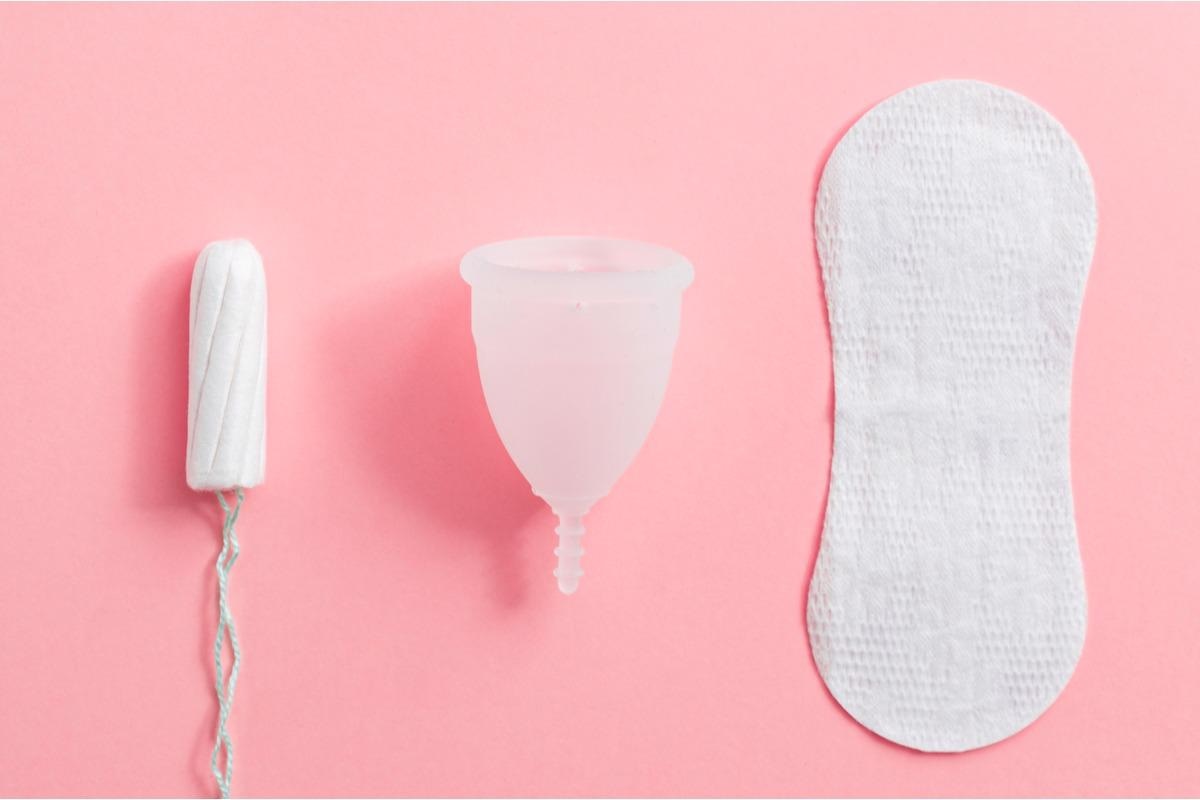Prevalence of menstrual changes following vaccination against COVID-19
A new study from the UK investigates the relationship between coronavirus disease 2019 (COVID-19) vaccination and menstrual cycle disturbances. It evaluates the prevalence of menstrual changes after COVID-19 vaccination, identifies the potential risk factors for menstrual changes, and identifies patterns of symptoms through written accounts of the participants.
 Study: COVID-19 vaccination and menstrual cycle changes: A United Kingdom (UK) retrospective case-control study. Image Credit: Tijana Simic/Shutterstock
Study: COVID-19 vaccination and menstrual cycle changes: A United Kingdom (UK) retrospective case-control study. Image Credit: Tijana Simic/Shutterstock
A preprint version of the study is available on the medRxiv* server while the article undergoes peer review.
Vaccination and menstrual cycle
In 1913, Dr. Albert R. Lamb, a medical doctor at the Presbyterian Hospital, New York, reported 100 cases of menstrual disturbances related to prophylactic typhoid vaccination.
These vaccine-related side-effects were temporary because the disturbances resolved within six months of vaccination.
A Japanese study conducted in 1982 reported that seven out of 16 hospital employees had menstrual disturbances after hepatitis vaccination. However, this study concluded that the menstrual disturbances were due to the use of human plasma to make the vaccine because it may contain hormonal impurities.
Recent large-scale studies report mixed results about the effect of vaccination on the menstrual cycle. In 2018, a Japanese study with 29,846 women found that menstrual symptoms were not associated with the human papillomavirus (HPV) vaccination.
However, women did have increased odds for hospital visits for menstrual disturbances. This suggests a possible link between the HPV vaccine and menstrual disturbances.
Another study reports a disproportionate number of reports of menstrual disturbances following the administration of the HPV vaccine. However, the relationship may be non-causal, depending on the type of vaccine.
The UK's Medicine and Healthcare products Regulatory Agency (MHRA) monitors reports of menstrual disturbances following vaccination with either mRNA or adenoviral COVID-19 vaccines. By September 2nd, 2021, more than 30,000 reports were made to its yellow card surveillance scheme.
A recent study from the US reports heavy bleeding among pre-menopausal women and breakthrough bleeding in non-menstruating women after COVID-19 vaccination.
A retrospective case-control study
From March 8th, 2021, to June 1st, 2021, an online survey titled "female reproductive health and the COVID pandemic" was disseminated via a Facebook ad campaign in the UK. The participants could only complete the survey if they were over 18, had ever menstruated, currently lived in the UK, and gave informed consent to use their data.
Of the 26,710 participants who gave consent and completed the survey, 4,989 were selected for this study. They were pre-menopausal and vaccinated with the Oxford AstraZeneca vaccine (53%) or the Pfizer BioNTech vaccine (47%). These participants were aged 28 to 43, predominantly from England (81%), of white background (95%), and not using hormonal contraception (58%).
Risk factors for COVID-19 vaccine-related changes in menstrual cycles
Of the 4,989 pre-menopausal vaccinated participants, 80% did not report any menstrual cycle changes up to 4 months after administering the first COVID-19 vaccine.
The current use of combined oral contraceptives was associated with a lower probability of reporting any changes by 48%.
The chances of reporting any menstrual changes were increased by 44% for current smokers and more than 50% for participants with long COVID or acute COVID.
There were no differences associated with age, body mass index, ethnic group, gender, marital status, physical activity, income, education, place of residence, cycle length, period length, irregular cycles, heavy bleeding, vaccine type, vaccine timing, parity, life satisfaction changes, medication use, use of vitamins/supplements, endometriosis, PCOS, thyroid disease, uterine polyps, uterine fibroids, inter cystitis and eating disorders, suggesting that these were not risk factors.
The effects remained after adjusting for the self-reported magnitude of menstrual cycle changes over the year preceding the survey.
Description of menstrual changes after COVID-19 vaccination
The written accounts of the participants included diverse symptoms with no pattern, even though many reported heavy bleeding.
The most common words reported were "late", "bleed", "early", "long", "heavy", "spotting", “short”, “pain”, “stop”, “day late”, “period start”, “heavy bleed” and “late period”.
Limitations of the study
This survey was not specifically designed to study the effect of COVID-19 vaccination on the menstrual cycle.
It does not assess the full spectrum of menstrual disturbance defined by the International Federation of Gynecology and Obstetrics Abnormal Uterine Bleeding System 1.
The study does not encompass a long period and may miss menstrual changes that may occur after the study period. There may be selection, recall, and reporting biases.
Implications of the study
This study was conducted before the widespread media attention to menstrual changes related to COVID-19 vaccination.
In this study, most participants did not experience menstrual changes. However, the prevalence of menstrual disturbances was one in five.
This study suggests that current smoking and having had COVID-19 may increase the chances of menstrual disturbance following COVID-19 vaccination, and current oral contraceptive use may decrease the chances of menstrual disturbance.
Knowledge of risk factors may help in advising individuals of the menstrual age before COVID-19 vaccination.
This study highlights the need for consideration of the menstrual cycle in health interventions. It also provides reassuring data when counseling reproductive-aged women about COVID-19 vaccination and menstrual changes.
*Important notice
medRxiv publishes preliminary scientific reports that are not peer-reviewed and, therefore, should not be regarded as conclusive, guide clinical practice/health-related behavior, or treated as established information.
Alvergne A, Kountourides G, Argentieri A, et al. (2021) COVID-19 vaccination and menstrual cycle changes: A United Kingdom (UK) retrospective case-control study. medRxiv. doi: doi:10.1101/2021.11.23.21266709 https://www.medrxiv.org/content/10.1101/2021.11.23.21266709v1
Posted in: Medical Science News | Medical Research News | Disease/Infection News
Tags: Bleeding, Body Mass Index, Contraception, Contraceptive, Coronavirus, Coronavirus Disease COVID-19, Cystitis, Doctor, Education, Endometriosis, Gynecology, Healthcare, Hepatitis, Hospital, Medicine, Obstetrics, Pain, Pandemic, Physical Activity, Reproductive Health, Smoking, Supplements, Thyroid, Thyroid Disease, Typhoid, Uterine Fibroids, Vaccine, Vitamins

Written by
Dr. Shital Sarah Ahaley
Dr. Shital Sarah Ahaley is a medical writer. She completed her Bachelor's and Master's degree in Microbiology at the University of Pune. She then completed her Ph.D. at the Indian Institute of Science, Bengaluru where she studied muscle development and muscle diseases. After her Ph.D., she worked at the Indian Institute of Science, Education, and Research, Pune as a post-doctoral fellow. She then acquired and executed an independent grant from the DBT-Wellcome Trust India Alliance as an Early Career Fellow. Her work focused on RNA binding proteins and Hedgehog signaling.
Source: Read Full Article
